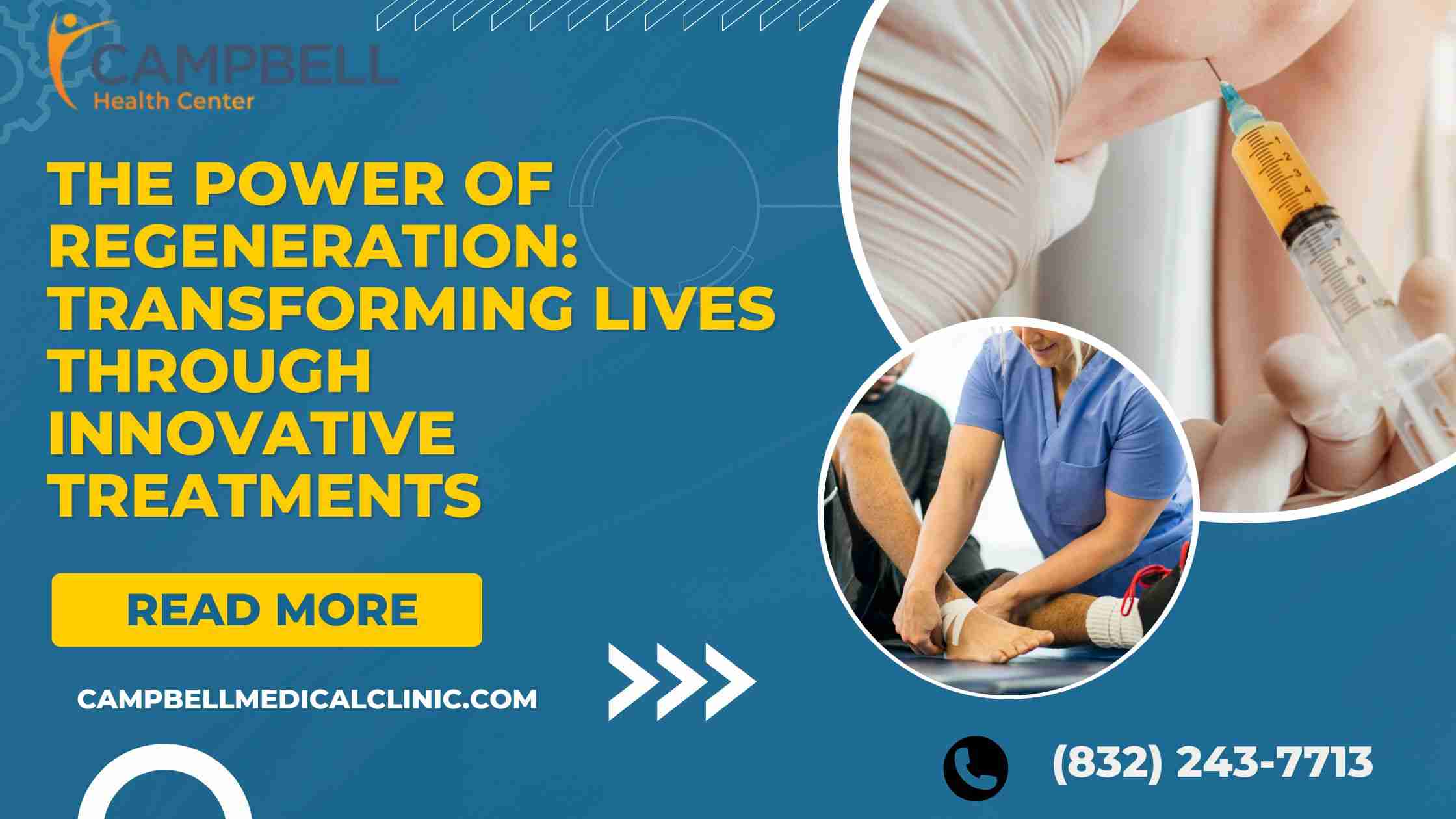The Power Of Regeneration: Transforming Lives Through Innovative Treatment
In recent years, advancements in medical science have revolutionized the field of Regeneration Therapy. These innovative treatments hold immense promise for enhancing quality of life and even curing previously untreatable conditions. Here's a detailed exploration of how these therapies are transforming lives:
1. Understanding Regeneration Therapies
• Definition: Regeneration therapies involve the repair, replacement, or regeneration of cells, tissues, or organs to restore normal function.
• Types of Regeneration Therapies:
o Stem cell therapy: Using stem cells to repair or replace damaged tissues.
o Tissue engineering: Creating biological substitutes to restore or improve tissue function.
o Gene therapy: Introducing genetic material into cells to correct genetic disorders.
2. Key Areas of Application
• Orthopedics and Sports Medicine:
o Repairing cartilage and bone injuries through stem cell injections.
o Accelerating healing of ligaments and tendons with growth factors.
• Neurology:
o Restoring brain function post-stroke through neural stem cell therapies.
o Treating neurodegenerative diseases like Parkinson's and Alzheimer's.
3. Transformative Impact on Health
• Chronic Disease Management:
o Improving outcomes for diabetes with pancreatic cell regeneration.
o Potential for curing autoimmune diseases by resetting immune responses.
• Cardiology:
o Repairing damaged heart tissue after heart attacks using cardiac stem cells.
o Developing bioengineered blood vessels for cardiovascular surgeries.
4. Case Studies and Success Stories
• Patient A, Orthopedics:
o Recovered mobility and function after receiving stem cell therapy for knee osteoarthritis.
• Patient B, Neurology:
o Notable improvement in motor skills and speech following neural stem cell treatment for cerebral palsy.
5. Ethical Considerations and Challenges
• Ethical Issues:
o Controversies surrounding the use of embryonic stem cells.
o Ensuring informed consent and patient rights in experimental therapies.
• Scientific Challenges:
o Ensuring safety and efficacy in long-term outcomes.
o Overcoming immune rejection in transplantation-based therapies.
6. Future Directions and Innovations
• Advancements in CRISPR Technology:
o Precision editing of genetic defects to prevent hereditary diseases.
• Artificial Intelligence (AI) in Regenerative Medicine:
o Predicting optimal treatment protocols based on patient data and genetic profiles.
7. Collaborative Efforts and Global Impact
• International Research Collaborations:
o Sharing knowledge and resources to accelerate breakthroughs.
• Access and Affordability:
o Addressing disparities in access to cutting-edge Regenerative Medicine Houston across different regions.
Conclusion
Regeneration therapies represent a paradigm shift in healthcare, offering hope where previously there was none. By harnessing the power of regeneration, medical science is not only transforming individual lives but also paving the way for a healthier future. As research continues and technologies evolve, the potential to cure debilitating diseases and enhance human longevity grows ever closer to reality.
